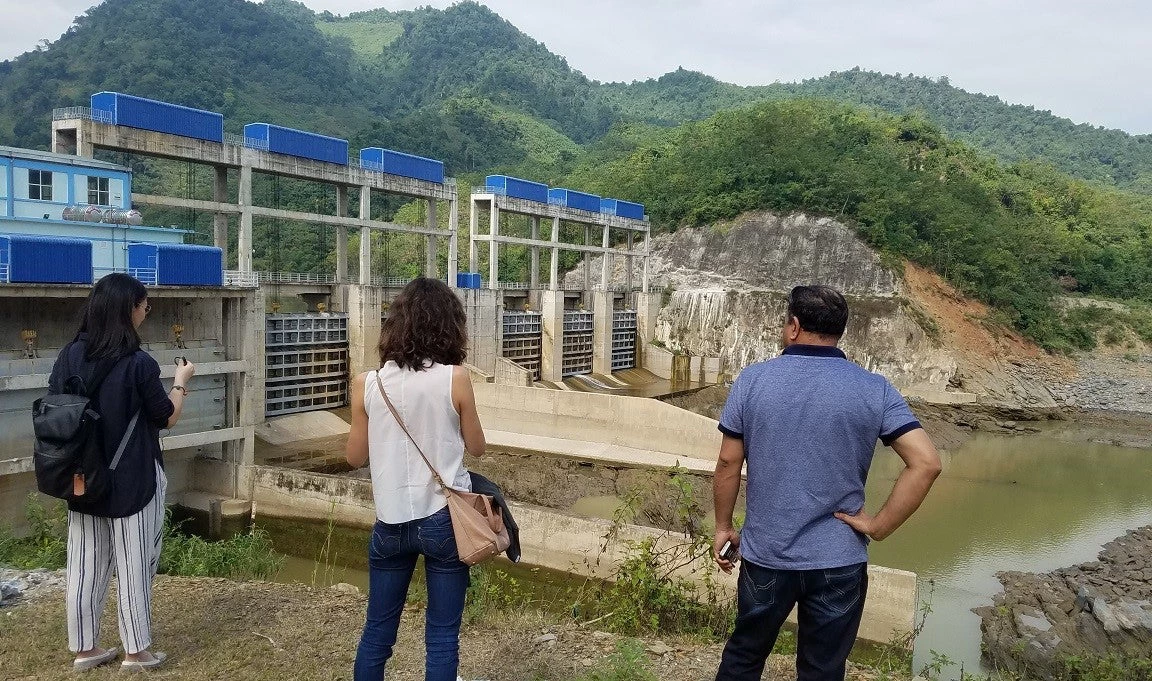Vietnam’s Renewable Energy Development Project (REDP) is proving that World Bank support, when coupled with results-based climate finance, can help strengthen program sustainability and the confidence of private investors, mobilize renewable energy markets, and positively impact local communities—going well beyond reduced carbon emissions.
The US$202 million World Bank funded REDP aimed to increase the supply of electricity to Vietnam’s national grid from renewable energy resources. The project sought to create a market for renewable energy development by strengthening the regulatory environment, building government capacity, and providing a credit line to local banks for investment in renewable energy projects.
Small hydropower was receiving a lot of interest from the private sector, but market barriers were still preventing investment.
In 2014, the Carbon Partnership Facility (CPF) agreed to purchase carbon credits generated by small hydropower development supported by REDP, creating an additional revenue stream of hard currency from results-based climate finance that addressed the perceived risk of investing in a yet to be proven development project. This innovative financing model, which included a combination of concessional investment financing and results-based climate finance from the World Bank, allowed local banks to cover their risk in line with commercial best practices.
As market confidence in small hydropower development grew, so too did commercial financing—the share of co-financing from local banks and the private sector grew from 36 percent of total investment cost per small hydropower project to as much as 50 percent by the close of REDP. Ultimately, REDP was able to mobilize more than US$220 million in additional investment from local banks and the private sector to support 19 small hydropower projects.
The benefits of climate finance, however, go beyond increasing investor confidence. The nature of results-based climate finance incentivizes the steady performance of participating projects, while building capacity within local government, and strengthening environmental monitoring and community engagement.
Vietnam’s Ministry of Industry and Trade, as the coordinating entity for the climate finance transactions, was responsible for monitoring and strengthening the performance of the small hydropower projects. By following internationally recognized methodology and standards, REDP was successfully registered as a Programme of Activities project under the United Nations Framework Convention on Climate Change (UNFCCC) and generated over 1.1 million certified emissions reductions from small hydropower projects between 2014 and 2017. The experience the government accumulated will help it to replicate this business model in other sectors and utilize climate finance in meeting the country’s future needs for low carbon development.

As all the small hydropower plants were constructed in rural and remote areas, the impact on local people, especially women, has been significant. The taxes collected from the projects are partly retained by local governments, increasing resources for poverty reduction and improvements in infrastructure and services—including new schools, cultural community houses, and new, improved roads. The projects increased access to electricity for these communities and created jobs for local people, both during project construction and continued operation of the power plants.
The REDP is an example of the World Bank’s expertise in tailoring packages to best fit the needs of clients. By strengthening the government’s capacity to develop and implement renewable energy programs, and demonstrating its ability to successfully complete carbon transactions, the project has brought international recognition to Vietnam’s efforts to reduce emissions and green the economy. Local banks are now more confident, capable, and interested in financing renewable energy projects, opening the door for future investment in solar and wind power. When the CPF results-based climate finance payment is completed in 2021, Vietnam will be well positioned to continue to mobilize climate finance, raising the country’s profile as it works toward achieving its Nationally Determined Contributions (NDC) targets.


Join the Conversation